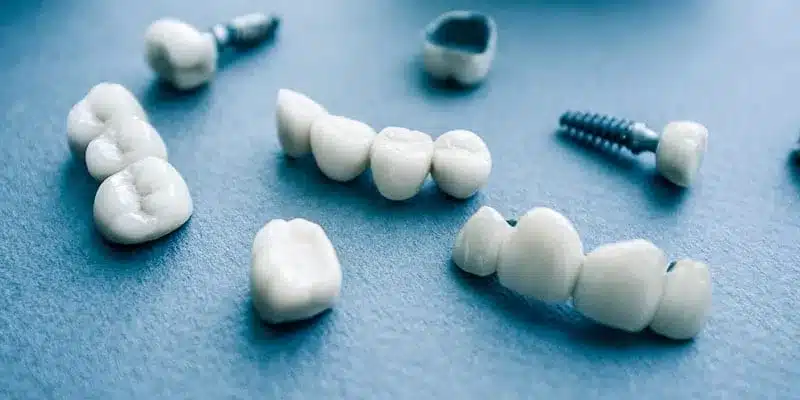Maintaining good oral health is essential for overall well-being, and Restorative Dentistry Bradford plays a vital role in enhancing and preserving the health of your teeth and gums. In this article, we will explore various ways in which restorative dentists can contribute to the improvement of your oral health. From addressing dental issues to providing preventive care and offering advanced treatment options, restorative dentists are equipped with the knowledge and expertise to help you achieve optimal oral health. Let’s delve into the ways in which restorative dentists can enhance your oral health and contribute to a confident and healthy smile.
Comprehensive Dental Examination:
Restorative dentists begin by conducting a comprehensive dental examination to assess the overall health of your teeth and gums. Through a meticulous evaluation, they examine each tooth, checking for signs of decay, gum disease, and oral abnormalities. This detailed examination helps identify any underlying dental issues that may require attention. By detecting problems early on, restorative dentists can provide timely treatment, preventing further deterioration of oral health. They may use advanced diagnostic tools such as digital X-rays and intraoral cameras to obtain a more accurate assessment. The comprehensive dental examination includes evaluating the condition of the enamel, assessing the gum health, inspecting the bite alignment, and examining the temporomandibular joints.
Dental Restorations:
Restorative dentists specialize in providing dental restorations to repair and restore damaged or decayed teeth. Whether it’s a cavity, a cracked tooth, or a missing tooth, restorative dentists employ a variety of techniques and materials to effectively address these issues. They use high-quality dental fillings made from composite resin or amalgam to fill cavities and restore the function and aesthetics of the affected tooth. For more extensive damage, restorative dentists may recommend dental crowns, which are custom-made caps that cover the entire tooth surface, providing strength and protection. In cases of tooth loss, they offer dental bridges, which consist of artificial teeth anchored to adjacent natural teeth or dental implants. Dental implants, considered the gold standard in tooth replacement, involve the surgical placement of titanium posts that integrate with the jawbone to support prosthetic teeth.
Periodontal Care:
Restorative dentists place significant importance on periodontal care, which focuses on the health of your gums and the prevention and treatment of gum disease. They understand that healthy gums are essential for maintaining a strong foundation for your teeth. Through regular check-ups and cleanings, restorative dentists monitor the health of your gums and provide necessary interventions to prevent or treat gum disease. They perform deep cleanings, known as scaling and root planing, to remove plaque and tartar buildup from below the gumline. This meticulous process involves carefully removing bacteria and infected tissues to promote gum healing and prevent further deterioration. Additionally, restorative Bradford Dentists offer guidance on proper oral hygiene practices, including brushing techniques and the use of dental floss or interdental brushes, to help you maintain healthy gums at home. By addressing periodontal issues promptly and effectively, restorative dentists safeguard your oral health, reduce the risk of tooth loss, and promote overall well-being.
Root Canal Therapy:
When the inner pulp of a tooth becomes infected or inflamed, restorative dentists can perform root canal therapy as an effective treatment option. This procedure aims to save the tooth from extraction by removing the infected pulp, disinfecting the root canals, and sealing them to prevent further infection. Root canal therapy is often recommended for teeth with deep cavities, cracked teeth, or dental trauma that has affected the nerve tissue. Restorative dentists use their expertise and specialized instruments to access the root canals, carefully remove the infected or damaged pulp, and clean the area thoroughly.
Once the canals are disinfected, they are filled with a biocompatible material, usually gutta-percha, and sealed to prevent reinfection. In some cases, a dental post may be placed inside the root canal for additional support. After the root canal procedure, restorative dentists typically recommend placing a dental crown over the treated tooth to restore its strength and protect it from further damage.
Prosthodontics:
Restorative dentists specialize in prosthodontics, a branch of dentistry focused on the design, fabrication, and placement of dental prosthetics. Prosthodontic treatments are tailored to replace missing teeth and restore the aesthetics and functionality of your smile. Restorative dentists offer a range of prosthodontic solutions, including complete dentures, partial dentures, and dental implants. Complete dentures are recommended for individuals who have lost all of their natural teeth, providing them with a full set of artificial teeth that are custom-made to fit comfortably and securely in the mouth. Partial dentures, on the other hand, are suitable for patients who have lost multiple teeth but still retain some healthy natural teeth. These dentures are designed to fill the gaps created by missing teeth and improve the ability to chew and speak effectively.
Dental implants are considered the most advanced and long-lasting option for tooth replacement. Restorative dentists surgically place dental implants into the jawbone, acting as artificial tooth roots. These implants serve as stable foundations for the attachment of dental crowns, bridges, or dentures.
TMJ Disorder Treatment:
Temporomandibular Joint (TMJ) disorder refers to conditions that cause pain, discomfort, and dysfunction in the jaw joint and surrounding muscles. Restorative dentists are trained to diagnose and treat TMJ disorders, offering various treatment options to alleviate symptoms and improve jaw functionality. They begin by conducting a thorough evaluation to identify the underlying causes of TMJ disorder, which may include teeth grinding, malocclusion (misalignment of the bite), or muscle tension.
Restorative dentists may recommend the use of oral appliances, such as splints or nightguards, to help relieve pressure on the jaw joint and prevent teeth grinding or clenching. These custom-fitted appliances are worn during sleep or throughout the day to provide support and alignment to the jaw, reducing pain and muscle tension.
In some cases, restorative dentists may suggest bite adjustments to correct misalignments or imbalances in the bite. This can be done through the reshaping of certain teeth or the use of orthodontic treatments to reposition the teeth into a more harmonious bite relationship. Physical therapy exercises and techniques may also be prescribed to help strengthen and relax the jaw muscles, providing relief from TMJ symptoms.
Cosmetic Dentistry:
Restorative dentists also incorporate cosmetic dentistry techniques to enhance the aesthetics of your smile. While cosmetic dentistry primarily focuses on improving the appearance of your teeth, it can also have a positive impact on your oral health. Restorative dentists offer various cosmetic treatments that not only enhance the beauty of your smile but also improve the functionality of your teeth.
One common cosmetic procedure provided by restorative dentists is teeth whitening. This non-invasive treatment can effectively remove stains and discoloration caused by factors such as aging, smoking, or consuming certain foods and beverages. By brightening your teeth, restorative dentists help boost your confidence and encourage proper oral hygiene practices.
Conclusion:
Restorative dentists play a crucial role in enhancing your oral health by offering a wide range of services that address dental issues, restore teeth functionality, and improve the aesthetics of your smile. Through comprehensive examinations, dental restorations, periodontal care, root canal therapy, prosthodontics, TMJ disorder treatment, and cosmetic dentistry, restorative dentists provide holistic care to enhance your overall well-being.









